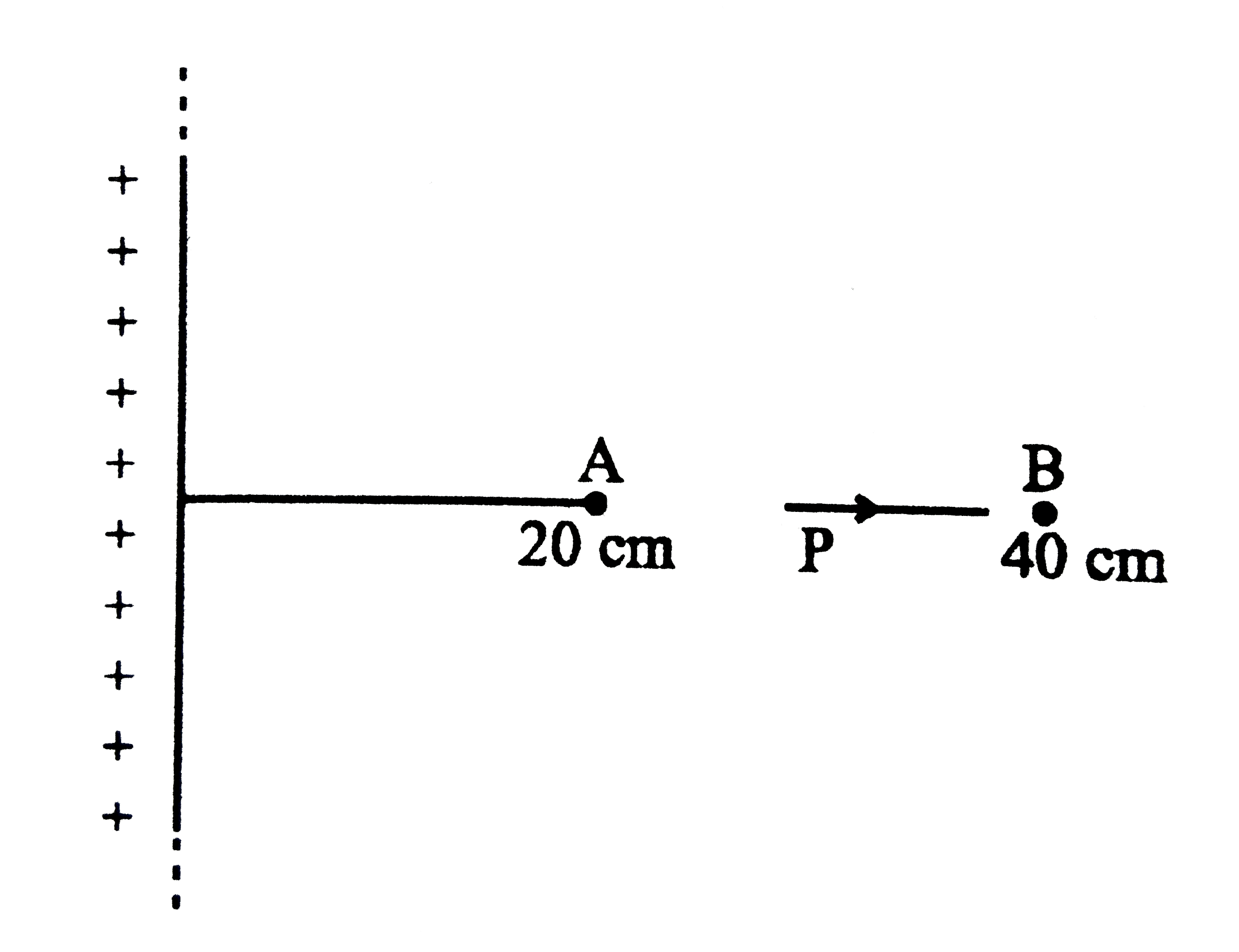A pont charge +q& mass 100gm experiences a force of 100N a a point at a distance 20cm from a long infinite uifromly charged wire , If it is relecased find its speed when it is at a distance 40 cm from wire .
The correct Answer is:20√n2
EA=(2kλ)(.2)⇒100Q=10Kλ
Kqλ=10 …(1)
Wfleld=q∫Edr ….(2)

Wfleld=ΔK=12mv2 …(3)
From (2) and (3)
12mv2=q∫0.40.22Kλrdr=2qKλ[loger]0.40.2
12mv2=2qKλln2 ...(4) .
12×0.1v2=20ln2⇒v=20√ln2.
Similar Questions
A particle of mass 100 gm and charge 2μC is released from a distance of 50 cm from a fixed charge of 5μC. Find the speed of the particle when its distance from the fixed charge becomes 3 m.
View SolutionA particle of mass 100 gm and charge 2μC is released from a distance of 50 cm from a fixed charge of 5μC. Find the speed of the particle when its distance from the fixed charge becomes 3 m.
View Solution
Knowledge Check
- Question 1 - Select One
At a distance of 10cm from a long straight wire carrying current, the magnetic field is 0.04T. At the distance of 40cm, the magnetic field will be
A0.01TB0.02TC0.08TD0.16T - Question 2 - Select One
At a distance of 10 cm from a long straight wire carrying current the magnetic field is 0.04 T. At the distance of 20 cm, the magnetic field will be
A0.01TB0.02TC0.08TD0.16T - Question 3 - Select One
The magnetic induction at a point P which is at a distance of 4 cm from a long current carrying wire is 10−8 T. The induction at a distance 12 cm from same current carrying wire is
A1.11×10−7 TB3.33×10−9 TC3×10−3 TD3.3×10−7 T
Two infinitely long parallel wires having linear charge density 3×10−9 C/m and 4×10−9 C/m are kept at a distance of 20 cm in air. What will be the magnitude and direction of the electric field intensity at a point that is at a distance of 10 cm from each wire?
View SolutionThe electric field at a distance r from a long wire having charge per unit length λ is
View SolutionAt a distance of 10 cm from a long staright wire carrying a current I, the magnetic field is 0.04 T. At a distance of 40 cm from the wire, the magnetic field will be
View SolutionAn electric current passes through a long straight copper wire. At a distance of 5 cm from the straight wire, the magnetic field is B. What is the magnetic field at a distance of 20 cm from the wire ?
View SolutionElectric field at a point of distance r from a uniformly charged wire of infinite length having linear charge density λ is directly proportional to
View Solution
